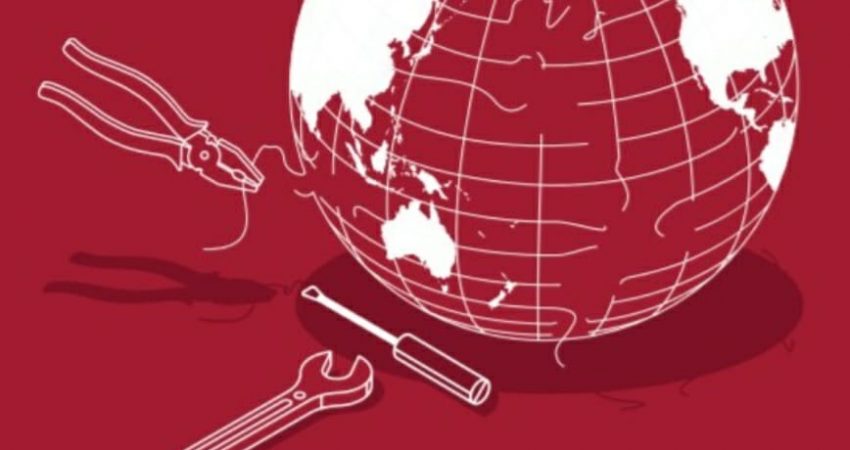
May 05
Posted in: Geopolitics Posted by: P S Billimoria
Comments 1052 Views 0
LOCALISM – GLOBALISATION NEXT
![]()
Part II: Nationalism and its impact
During the time of the great wars young men who turned away from the front lines were shot as traitors. This horrific fact, justified in the name of patriotism, is a stark contrast to the anti-war protests of the seventies, sparked by realisation of the full extent of the carnage perpetrated by both sides. In later years wars are justified with the adage that evil exists when good men do nothing.
If people other than psychopaths believe in a “good war”, the blame must surely lie at the doorstep of misguided ultra-nationalism which can very quickly become toxic.
We must firstly admit that it is human to have a “herd instinct” which makes us differentiate between “us” and “them”. Nationality has long been an integral part of self-identity since it generates a deep sense of belonging. Nations tend to integrate socially and culturally, which then defines who we are. (As an aside, this is perhaps the reason why India as a diverse nation was predicted to fail as a state. However, few will now deny that there is something which we can label “Indian-ness”).
This very human instinct contradicts the milieu of quantum physics, where the general acceptance that we are all fundamentally the same stretches to the knowledge that everything is ultimately connected. We must therefore ask ourselves whether nation states make much sense any longer.
The answer, sadly, is yes. Apart from preserving cultures, that national boundaries make governance and administration possible. (For better solutions to these twin objectives, watch this space – Part III). Set up as we are with artificial borders, if these imaginary lines of demarcation are made porous it would create chaos. Mass migration to cities driven by work opportunities has already resulted in ecological disaster within national boundaries. Those who advocate open borders do not fully grasp its disastrous but inevitable consequences.
Before we start looking at solutions which preserve local cultures without restraining human liberties within confined borders (and there are solutions – again – watch this space), the first task at hand is to eradicate aggressive statehood of the toxic kind which lead to armed conflict. Nationalism does not need to morph into hegemony. There is nothing wrong with nationalism where nations watch out for their own (think “America First”) as long as ideologies, are not sought to be exported and expansionism does not become the guiding mantra.
The 2020 pandemic is a direct cause of precisely such ultra-nationalist ambitions of the Chinese Communist Party (CPC). When China reneged on its promise on the lawns of the White House that it will not militarise the South China Sea, it was not just about a few jelly fish. It’s military presence and claims to sovereignty in that region threaten South East Asia. When China belied expectations of integrating into the WTO world order by resorting to grossly unfair trade practices (the premise on which it was afforded membership of the WTO), the world ought to have realised that it’s objective is no less than economic warfare.
Unfortunately, the Western world misconstrued the advent of private ownership of businesses by the CPC as a U-turn from communist ideology. The great evil of communism is not just that it impinges on entrepreneurship, but also that it needs a totalitarian state to sustain it. China, in the guise of allowing private ownership hoodwinked the world into thinking that it will inevitably have to imbibe democratic values. The reality is that communism is much more about politics than economics. The world overcame its horror to Tiananman Square massacre and decided to do business with a communist state with an agenda it no longer cares much to hide. The pandemic however, has led to the realisation that China cannot retain its free enterprise pretensions without first shedding its political system. The inherent contradiction between its abhorrent political system and its willingness to do business (and at any cost) can no longer be ignored.
Several of my American friends have long believed that their kids will one day fight China. Once again, we find ourselves thinking in terms of a “good war”. And this is the reason why, while continuing to talk about the role of China in bringing the world to this sorry state of affairs, I continue to emphasise that it is not the Chinese people but only the CPC which is to be faulted. Indeed, the Chinese people have suffered at the hands of its own Government and the time has now come to find ways to bring down this evil state without thinking of war and conflict.
The rising anathema to everything Chinese however, is also a lesson for humanity to not tolerate ultra-nationalist Governments which seek to achieve global dominance. Until the world evolves into a better political and economic system (watch this space!) we must live with non-toxic nationalism while finding ways to stamp out totalitarian regimes without resorting to armed conflict. Economic isolation is one answer.
Oddly, the liberal-left, continue to deride this policy as isolationist without realising that it is not just about preserving non-toxic nationalism but also about combating evil without taking lives. These are the same people who go apoplectic about privacy rights, yet want to trade with and sustain a regime which has already implemented blanket surveillance with military precision and now wants to access global meta-data in its quest to control the world. Some see this as hypocrisy. I see as a sign of intellectually bankruptcy. Yet, what does one expect from an intelligentsia which widely protested the advent of globalism, but now vehemently support it to a fault.
***
